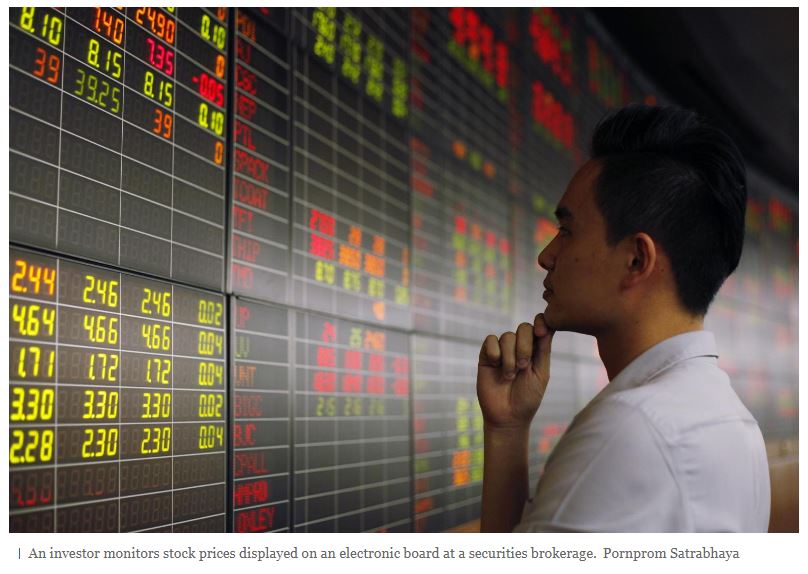Thailand: Sales tax seen hitting SET liquidity
The planned taxation on share sales may cost the Stock Exchange of Thailand (SET) the title of the most liquid stock market in Asean next year as it will greatly decrease the market’s competitiveness, said Paiboon Nalinthrangkurn, chairman of the Federation of Thai Capital Market Organizations (Fetco).
The tax will raise both transaction costs for investors and fundraising costs for Thai companies, and consequently propel investors to seek higher returns in other markets, he said.
Mr Paiboon said the taxation rate of 0.1% is quite high as it equals the stock trading commission fee.
Mr Paiboon said the taxation rate of 0.1% is quite high as it is equal to the stock trading commission fee.
When combined, the total cost of stock trading will edge close to 0.2% of transaction value and may drive speculative and short-term investors, including investors with high frequency trading that are mostly foreign investors who trade with programs to seek other markets with lower costs.
The migration of these foreign investors and speculators will cause the Thai bourse’s daily turnover to decline from the current level which now stands at 90 billion baht per day.
Issuers may also have to offer higher returns or do more international roadshows to attract investors, which will result in higher fundraising costs.
Besides the tax, another factor that will lower liquidity and increase volatility in the Thai market in 2022 is the Federal Reserve’s tapering of its quantitative easing programmes.
The decrease in asset buybacks and money injection will cause liquidity in the stock markets to plunge and result in capital outflows from the stock market to safe-haven assets, Mr Paiboon said.
In addition, there will be a big redemption of the long-term equity fund (LTF) with the partial maturity of around 40-50 billion baht in 2022 that will also result in a drop in liquidity.
“With many factors threatening to shrink the bourse’s liquidity, we disagree with the taxation as it’s not good timing to do so,” said Mr Paiboon.
Therdsak Thaveeteeratham, executive vice-president of Asia Plus Securities, said if calculated from the SET’s current daily trading turnover of about 90-94 billion baht, the Finance Ministry will gain revenue of about 20 billion baht per year from the share sales tax.
With decreased competitiveness, hedge funds may also exit the market as transaction costs go higher.
“The timing for the tax collection is not right,” said Mr Therdsak.
Recently, Finance Minister Arkhom Termpittayapaisith said the ministry might slap the tax on share sales by individual investors in the SET in 2022 to generate additional revenue.
This financial transaction tax has been on the books since 1991, but has always been waived.
Last week Revenue Department director-general Ekniti Nitithanprapas said most individual investors would not be affected by the planned financial transaction tax.
Mr Ekniti said that the department was studying a plan to implement this tax, based on the principle it would not impact small investors.
The department is considering the value of the share sales to be exempted from the tax. It could be either a monthly limit of 1 million baht or 3 million baht.
Mr Ekniti said 80% of SET stock investors sell shares valued at less than 1 million baht monthly, while around 90% of total investors sell shares worth less than 2.5 million baht monthly.
The financial transaction tax is 0.1% and would be applied to the amount exceeding the sales value limit, said Mr Ekniti.
For example, if the sales value exceeds the limit by 1,000 baht, only that 1,000 baht is taxed, creating a tax bill of only one baht. If the sales value limit is exceeded by 1 million baht, the tax would be 1,000 baht.
In addition to the 0.1% transaction tax, investors are also subject to a related local tax. This means the investors subject to the tax must pay a total of 0.11% of the share sale.
The financial transaction tax is expected to generate an additional 15-20 billion baht for state coffers per year, Mr Ekniti said.
Source: https://www.bangkokpost.com/business/2238887/sales-tax-seen-hitting-set-liquidity


 Thailand
Thailand





